‘Nothing like the old days’: Expert explains what’s happening with WA’s ‘fly plague’
A leading fly expert has shared what’s really happening in the incredible scenes coming out of one Aussie state.
A series of alarming viral videos from travellers and locals in Western Australia have sounded an alarm about a fly infestation that’s taken the region by storm.
But one leading fly expert argues scenes don’t veer far from the usual for WA, and, in recent history, the state has seen far worse.
Disturbing footage posted on TikTok by adventurers Chloe Peters and Harrison Davis this week left many wondering about the severity and origin of the pests.
The video of the pair lounging on a picturesque Coral Bay beach while swarmed by an army of flies has been seen 2.5 million times.

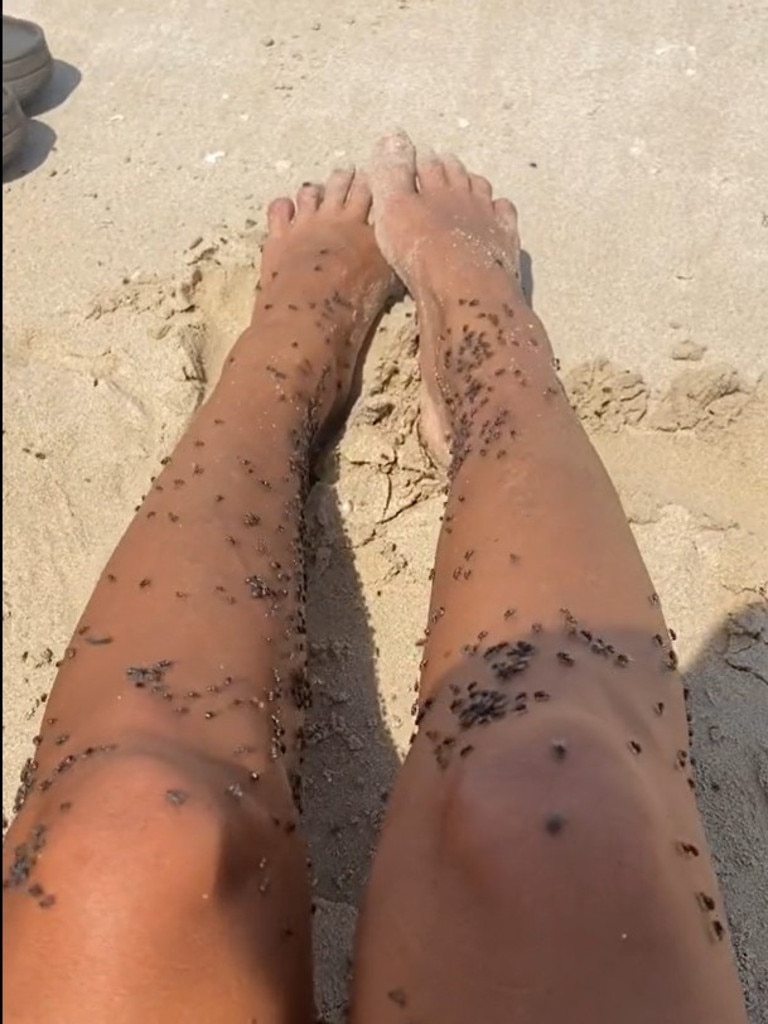
“We heard the flies were bad in Western Australia, but this is next level,” the Brisbane couple declared.
Chloe Peters told news.com.au, “They were a little bit hectic at Exmouth (an hour and a half north), but manageable.”
“But we went to Coral Bay for a day trip, and it was just next level – it was insane the amount of flies. People were telling us wherever you were for that two weeks was just mental,” she said.
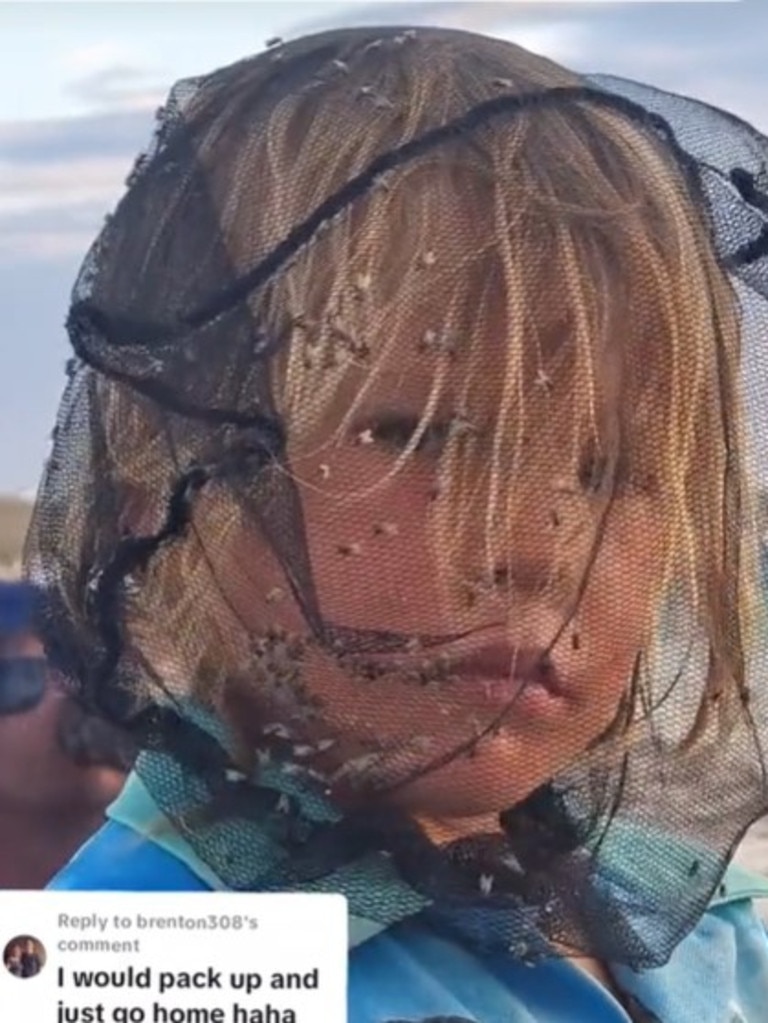
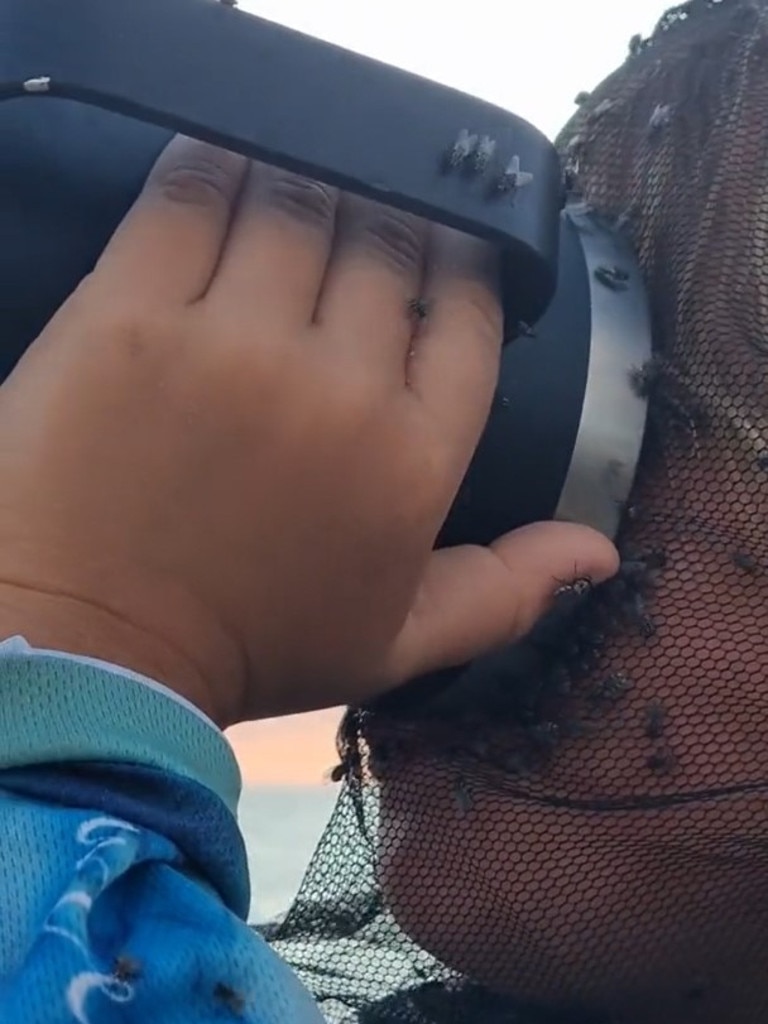
A Canadian expat who had been living in Western Australia for about two-and-a-half months posted his own expletive-laden video, which garnered more than 100,000 views.
Frustrated, he compared the pests to the swat-impervious master of evasion, “Mister Miyagi”.
Even pets are not spared from the relentless flies, as an Australian backpacker shared a video of her dog struggling to stay calm while flies tormented her furry friend.
But it’s not all doom and gloom, as University of Western Australia Professor in Biological Science, Theo Evans, shed some much-needed light on the ongoing fly situation.
He reassured the public the state has witnessed more severe fly invasions in recent history.
Prof Evans explained Australia is home to many fly species, with only a select few causing trouble for humans, pets, and livestock.
Among these, the Australian bushfly, suspected to be responsible for causing the viral chaos, is perhaps the most infamous, especially among urban residents.
The life cycle of these bushflies is intricately linked to temperature.

“Bushflies do not survive below around 15 degrees,” he told news.com.au.
“So they die off in the colder, southern regions of the country during winter. They survive winter – and year-round – in the warmer, northern regions of the country (during the ‘dry’ season).”
The problem, according to Prof Evans, is compounded by the bushfly’s preferred breeding grounds – moist dung.
During the spring season, cattle and sheep produce dung teeming with nutrients, providing an abundant food source for fly larvae.
To tackle this issue, CSIRO introduced dung beetles into Australia. The insects not only eat dung but also bury it, preventing the bushflies from reproducing.
“Dung beetles are either winter active or summer active (depending on the species),” Prof Evans said.
“We don’t have spring active species. So the dung accumulates in spring when bushflies arrive from the north, so they can breed, and there are big populations of bushflies.”
This year, hot spring weather has further aggravated the situation, causing bushflies to breed more rapidly than usual.
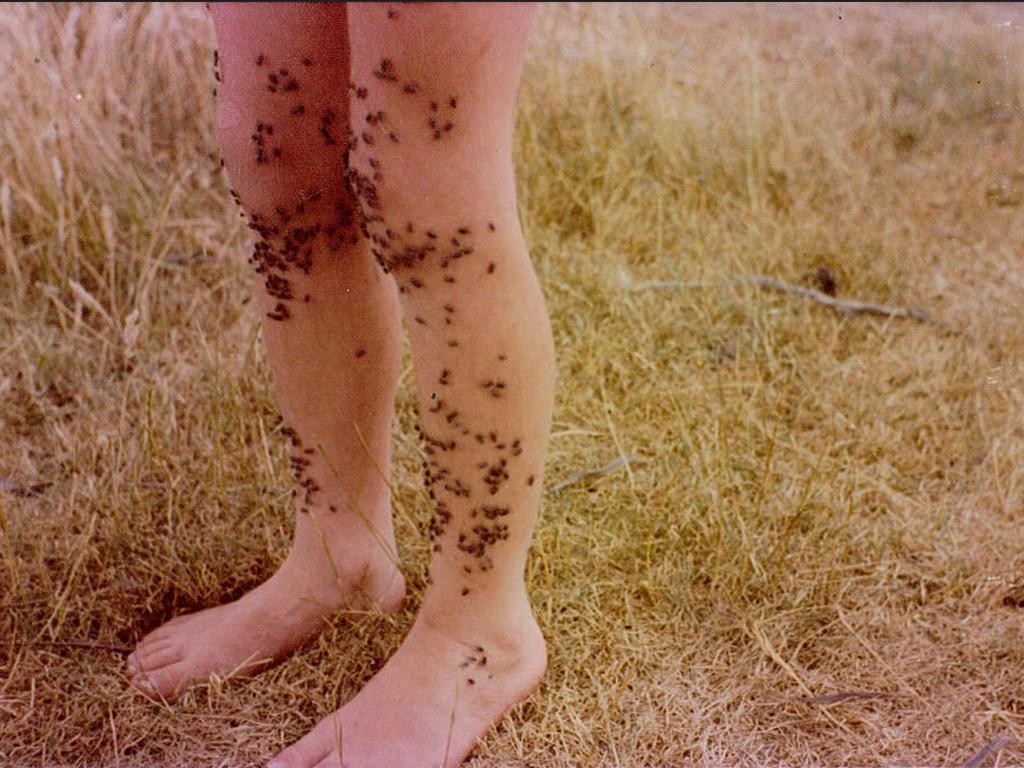
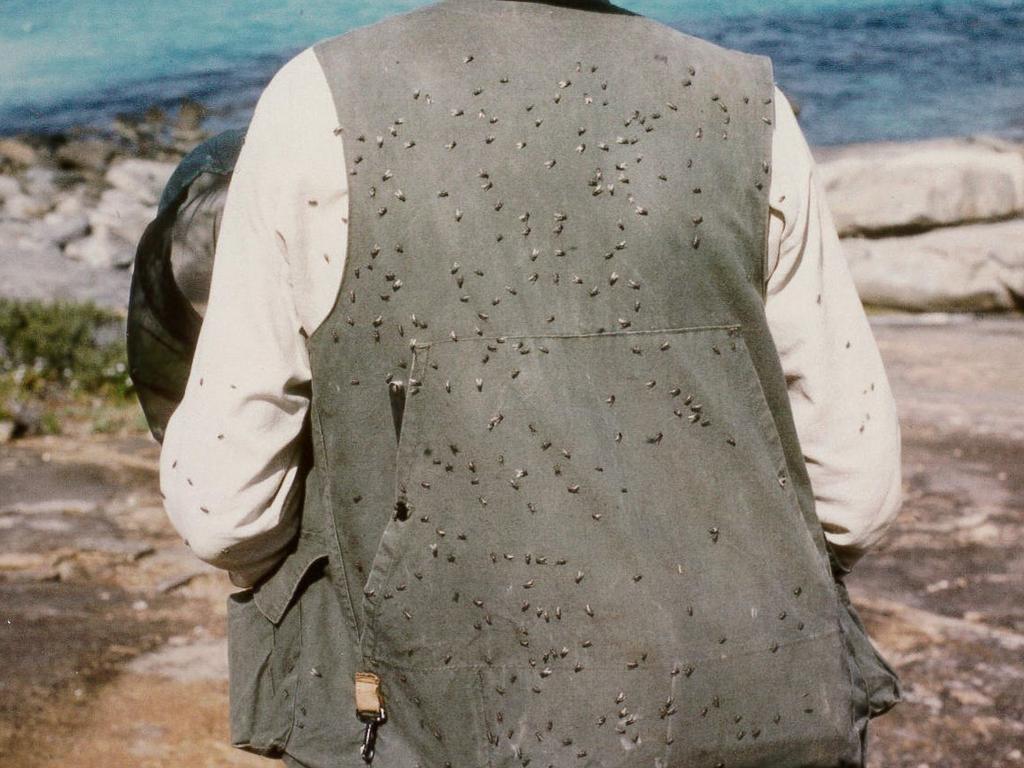
“During spring and early summer bushflies may accumulate into large populations by the coast,” Prof Evans explained.
“In WA, this is driven by easterly winds, which blow the bushflies to the coast – similar pattern in the eastern states, but westerly winds.
“The bushflies avoid flying out over the ocean, so they hug the land.
“And there is little freshwater, so they target humans – eyes, noses and mouths, for the moisture in tears, mucus and saliva.”
Prof Evans provided us with some much-needed reassurance by pointing out that the annual fly infestation will soon come to an end.

As the summer-active dung beetles emerge from the soil, they will consume and bury the dung, effectively out-competing bushflies and causing their populations to decline significantly.
“People have forgotten just how many flies were around before dung beetles really established and grew into large populations – mostly in the 1980s,” Prof Evans said.
“Fly populations were very high for three to four months, from spring through autumn, whereas nowadays flies are bad for about three or four weeks and only in spring.”
Originally published as ‘Nothing like the old days’: Expert explains what’s happening with WA’s ‘fly plague’





